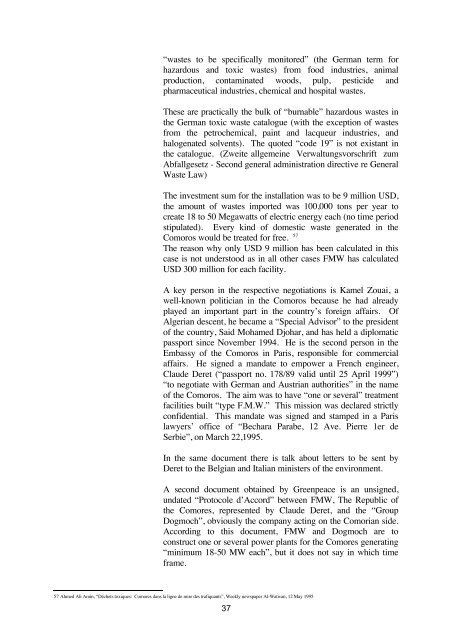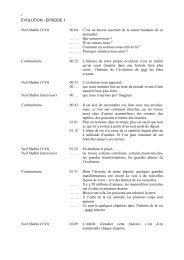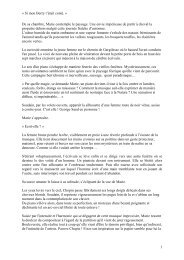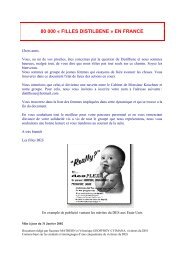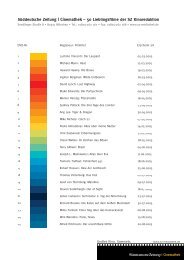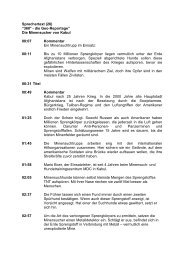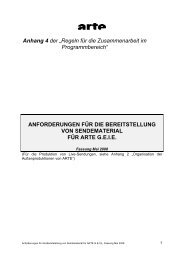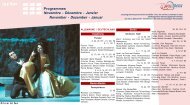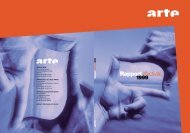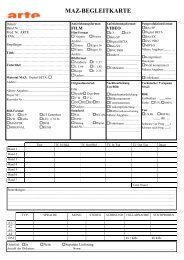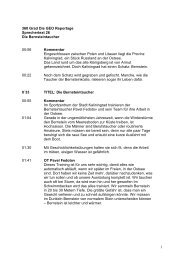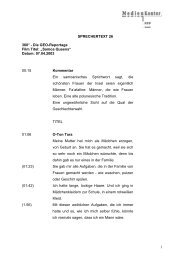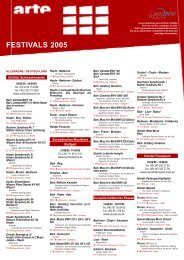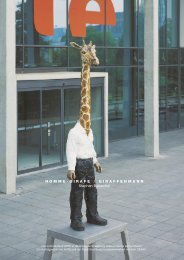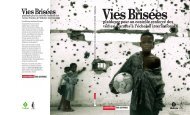POPs IN AFRICA HAZARDOUS WASTE TRADE 1980 - 2000 ... - Arte
POPs IN AFRICA HAZARDOUS WASTE TRADE 1980 - 2000 ... - Arte
POPs IN AFRICA HAZARDOUS WASTE TRADE 1980 - 2000 ... - Arte
Create successful ePaper yourself
Turn your PDF publications into a flip-book with our unique Google optimized e-Paper software.
“wastes to be specifically monitored” (the German term for<br />
hazardous and toxic wastes) from food industries, animal<br />
production, contaminated woods, pulp, pesticide and<br />
pharmaceutical industries, chemical and hospital wastes.<br />
These are practically the bulk of “burnable” hazardous wastes in<br />
the German toxic waste catalogue (with the exception of wastes<br />
from the petrochemical, paint and lacqueur industries, and<br />
halogenated solvents). The quoted “code 19” is not existant in<br />
the catalogue. (Zweite allgemeine Verwaltungsvorschrift zum<br />
Abfallgesetz - Second general administration directive re General<br />
Waste Law)<br />
The investment sum for the installation was to be 9 million USD,<br />
the amount of wastes imported was 100,000 tons per year to<br />
create 18 to 50 Megawatts of electric energy each (no time period<br />
stipulated). Every kind of domestic waste generated in the<br />
Comoros would be treated for free. 57<br />
The reason why only USD 9 million has been calculated in this<br />
case is not understood as in all other cases FMW has calculated<br />
USD 300 million for each facility.<br />
A key person in the respective negotiations is Kamel Zouai, a<br />
well-known politician in the Comoros because he had already<br />
played an important part in the country’s foreign affairs. Of<br />
Algerian descent, he became a “Special Advisor” to the president<br />
of the country, Said Mohamed Djohar, and has held a diplomatic<br />
passport since November 1994. He is the second person in the<br />
Embassy of the Comoros in Paris, responsible for commercial<br />
affairs. He signed a mandate to empower a French engineer,<br />
Claude Deret (“passport no. 178/89 valid until 25 April 1999”)<br />
“to negotiate with German and Austrian authorities” in the name<br />
of the Comoros. The aim was to have “one or several” treatment<br />
facilities built “type F.M.W.” This mission was declared strictly<br />
confidential. This mandate was signed and stamped in a Paris<br />
lawyers’ office of “Bechara Parabe, 12 Ave. Pierre 1er de<br />
Serbie”, on March 22,1995.<br />
In the same document there is talk about letters to be sent by<br />
Deret to the Belgian and Italian ministers of the environment.<br />
A second document obtained by Greenpeace is an unsigned,<br />
undated “Protocole d’Accord” between FMW, The Republic of<br />
the Comores, represented by Claude Deret, and the “Group<br />
Dogmoch”, obviously the company acting on the Comorian side.<br />
According to this document, FMW and Dogmoch are to<br />
construct one or several power plants for the Comores generating<br />
“minimum 18-50 MW each”, but it does not say in which time<br />
frame.<br />
57 Ahmed Ali Amin, “Déchets toxiques: Comores dans la ligne de mire des trafiquants”, Weekly newspaper Al-Watwan, 12 May 1995<br />
37


